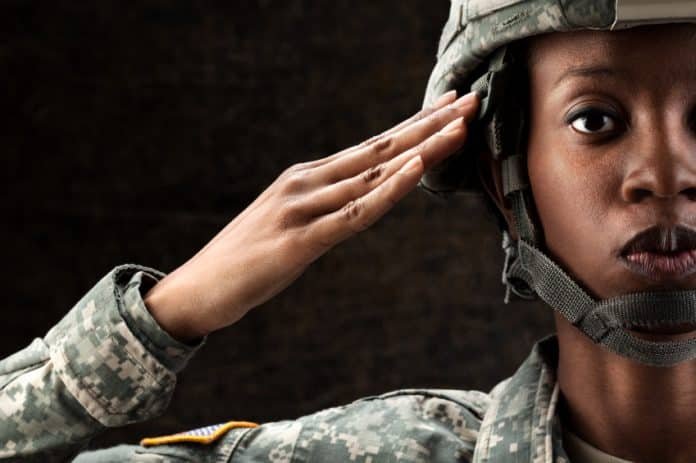By Austin Bunn
The U.S. Department of Veterans Affairs knows exactly how many men served in Vietnam (2,594,200) and how many were killed in action (58,188). It can furnish all kinds of stats about those soldiers, like the percentage of men who worked in supply (between 60 and 70 percent) as opposed to combat (30 to 40 percent). But ask about the women who served in Vietnam — women other than nurses — and the numbers disappear. The records are muddled, they say; the files don’t work that way. Yes, the armed forces sent women to Vietnam, but an official record of their presence there doesn’t really exist.
At least 1,200 female soldiers were stationed in Vietnam in various branches of the military as photojournalists, clerks, typists, intelligence officers, translators, flight controllers, even band leaders. They served prominently in Saigon, in the Mekong Delta and at Long Binh, which was, for a time, the largest Army headquarters in the world.
They could not fight, nor were they allowed to carry weapons to defend themselves. Most were part of the pioneering Women’s Army Corps (WAC), created in 1942 to integrate the armed forces. All of them enlisted for service in Vietnam, mostly in the early part of the war.
Like a lot of Vietnam veterans, these women have been dogged by their experiences in the country; unlike many veterans, they do not feel officially recognized and have been reluctant to seek help. Some have been plagued by symptoms of post-
“For eight years, my husband didn’t know I was a vet,” says Agnes Feak, who participated in air evacuation of Amerasian children called Operation Baby Lift. “I kept my mouth shut when I came home. He found a photo of me in fatigues and said, ‘Who’s that?’ And I said, ‘That’s me.'”
Linda Watson, who was a private first class, says, “I didn’t think I qualified for benefits, because I didn’t consider myself a Vietnam vet. It’s just recently I came to the realization I am. I didn’t see all the atrocities. But I saw enough for me.”
This week, the WAC women who served in Vietnam are having their first reunion, a three-day “homecoming” in Olympia, Wash. For some of them, it will be the first time they have talked about the war. Some won’t go, because they still can’t.
“I’m looking forward to [the reunion] with trepidation,” says Karen Offutt, who served as an administrator in Vietnam. “I don’t know what memories will come out. On the other hand, I’m hoping that it will put closure to it.
“People keep saying, Why don’t you forget Vietnam? I don’t think I’ll forget Vietnam, because it changed my trust in people — it isolated me. I seem like a very sociable person. But I’m very much a recluse. It just changed me. The babies that I took care of — babies with their legs blown off and shrapnel wounds, I felt so helpless and the guilt of having seen what I had.
“I’d like to forget about it, but I think about it every day.”
ATTENTION READERS
We See The World From All Sides and Want YOU To Be Fully InformedIn fact, intentional disinformation is a disgraceful scourge in media today. So to assuage any possible errant incorrect information posted herein, we strongly encourage you to seek corroboration from other non-VT sources before forming an educated opinion.
About VT - Policies & Disclosures - Comment Policy




